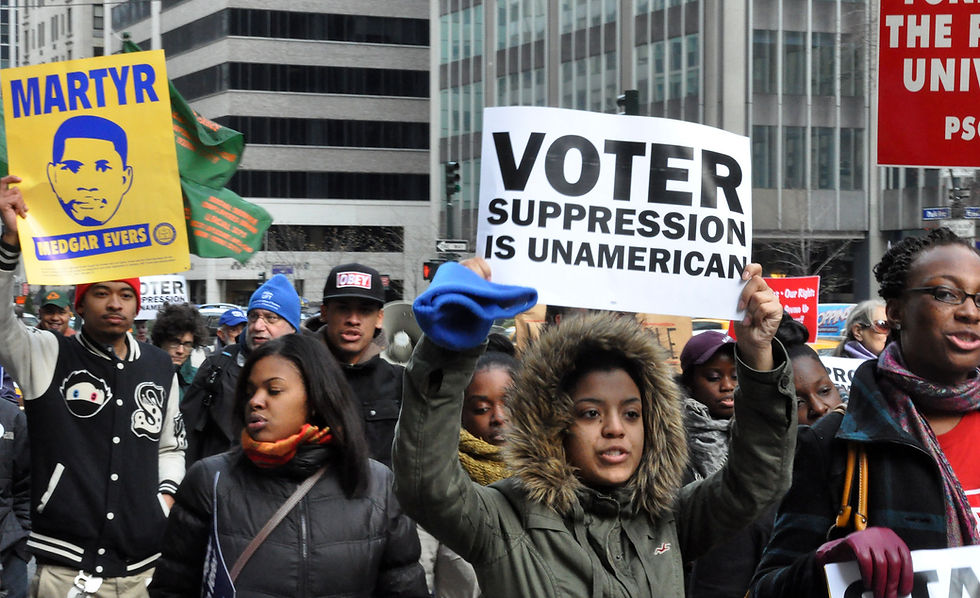Editorial: Political Amnesia: How Democracies Forget the Warning Signs of Authoritarianism Until It’s Too Late
- Natalie Frank
- Aug 18, 2025
- 3 min read
Updated: Aug 26, 2025
When history’s darkest chapters fade from memory, democracy risks repeating the same mistakes over again
Natalie C. Frank, Ph.D August 18, 2025
![Stalin; Odaluvio/Blogspot [CC BY 3.0]](https://static.wixstatic.com/media/1de624_a9e93d0f424e427cbd9db707be156b34~mv2.jpg/v1/fill/w_439,h_642,al_c,q_80,enc_avif,quality_auto/1de624_a9e93d0f424e427cbd9db707be156b34~mv2.jpg)
Authoritarianism rarely appears suddenly. It creeps in quietly, with gestures that may seem to many to be temporary, sensible, or even harmless. A power grab disguised as reform. A law framed as security. A leader who insists he alone can cut through the noise. By the time the public recognizes the danger, the foundations of democracy have already been irreversibly damaged. What makes this slow progression possible is not just political calculation but a kind of collective forgetting, a political amnesia that blinds societies to the lessons of their own history.
The pattern is well-documented. Citizens disillusioned by gridlock or corruption begin to welcome the “strong hand,” the figure who promises to restore order and efficiency. Institutions, portrayed as burdensome obstacles, are weakened bit by bit until they are eliminated. Leaders call for loyalty, then demand it. What starts as impatience with current government procedure becomes, almost barely noticeable, an acceptance of unchecked power. And still, many just shrug. The drift toward authoritarianism feels ordinary, until it doesn’t.
What history shows us, again and again, is that authoritarian regimes rarely start with spectacle. They start with the careful erosion of trust in courts, legislatures, and the press. They start with citizens convincing themselves that a small compromise is preferable to chaos. Political amnesia wipes away these early stages. We remember gulags and coups, but not the subtle legal changes that made them possible. We remember the wall falling in Berlin, but not the silenced neighbors who vanished long before it did. Forgetting the first act leaves us vulnerable to its repeat performance.
This forgetting is not accidental. It is cultivated. Authoritarian movements thrive on nostalgia and the promise to revive a lost greatness. To embrace that story, societies must forget the violence and repression that defined those supposed golden eras. Amnesia becomes not just a condition but a civic responsibility, demanded by the leader and absorbed by the public.
There is also exhaustion. Constant vigilance is tiring, and democratic societies mistake fatigue for stability. People withdraw, rationalizing abuses as “politics as usual.” This drift toward indifference is what makes authoritarianism sustainable, not a sudden takeover, but a long period of people looking away.
The United States is not immune. The mythology of American exceptionalism often covers up our own authoritarian periods: McCarthyism reduced to a cultural cliché, the internment of Japanese Americans tucked into a few paragraphs of a history textbook, the systematic suppression of Black voters treated as ancient history. Each of these moments reflects the same impulses impulses, fear, control, exclusion, that give life to authoritarian politics in other places.
Today, with leaders willing to undermine elections, fan the flames of political violence, and get rid of norms of accountability, echoes of those past episodes are unmistakable. Yet many Americans remain confident it cannot happen here. That confidence is itself a form of political amnesia.
Even when societies try to deal with authoritarian history, they often focus on the wrong details. We build monuments to victims without analyzing the ordinary politics that enabled victimization. We attribute authoritarianism to singular madmen, forgetting that no despot rules without enablers, politicians, business leaders, bureaucrats, neighbors, who decide it is easier to comply than resist. We say “never again” while ignoring the smaller “again and again” compromises happening in plain sight.
The opposite of political amnesia is not nostalgia; it is vigilance. Remembering actively means teaching history not as distant tragedy but as an ongoing warning. It means drawing clear parallels between then and now, refusing to dismiss authoritarian rhetoric as entertainment, and resisting the normalization of violence in public life.
Democracy survives not on faith but on discipline. It is held together by citizens willing to defend its dullest routines, procedural votes, oversight hearings, local elections, that seem insignificant until they are gone. Authoritarianism feeds on the gaps in memory. It thrives when we forget that democracy is fragile, conditional, and never guaranteed.
The question is not whether authoritarianism could happen here. It already has, in smaller, quieter ways. The question is whether we will remember enough to stop it before it becomes irreversible.






